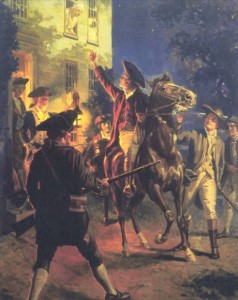From a comment on a post at Belmont Club:
…There is also the problem of the elite’s lack of humility. I’m a pretty smart guy, and I think I could do a decent job of re-ordering the world if given absolute power.
But … It wouldn’t be right. It is not up to me to tell my fellow humans how to live. I think bowling, for instance, is stupid, though many people enjoy it. What/who gives me the right to tell bowlers that they should be going to the symphony instead?
But nobody is forcing me to go bowling and nobody is using my tax dollars to subsidize bowling, so I don’t care. Not my business, and not a problem. This is the essence of liberty.
For a thought experiment, substitute guns, french fries, or abortion for bowling above and see how you feel. The realization that you do not have the Moral Authority to try to construct a perfect world that eliminates what you dislike is the essence of humility. Many very bright people lack humility.
